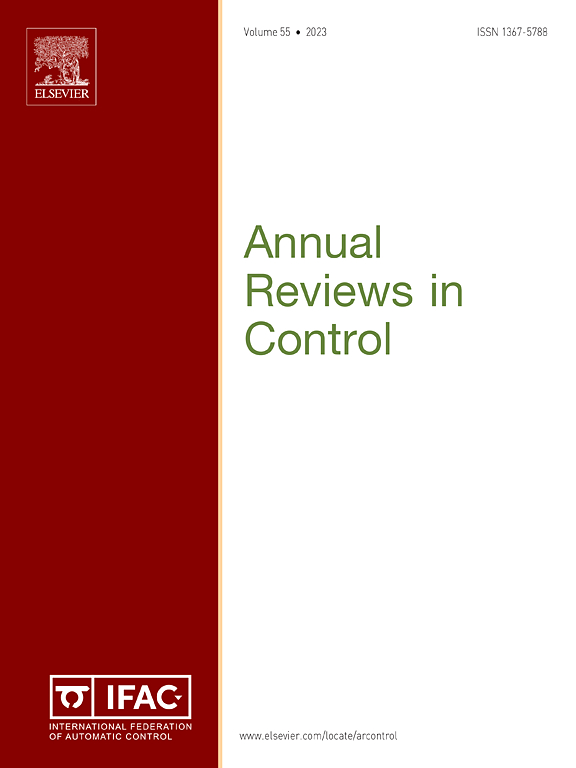Linear quantum systems: a tutorial
IF 7.3
2区 计算机科学
Q1 AUTOMATION & CONTROL SYSTEMS
引用次数: 10
Abstract
The purpose of this tutorial is to give a brief introduction to linear quantum control systems. The mathematical model of linear quantum control systems is presented first, then some fundamental control-theoretic notions such as stability, controllability and observability are given, which are closely related to several important concepts in quantum information science such as decoherence-free subsystems, quantum nondemolition variables, and back-action evasion measurements. After that, quantum Gaussian states are introduced, in particular, an information-theoretic uncertainty relation is presented which often gives a better bound for mixed Gaussian states than the well-known Heisenberg uncertainty relation. The quantum Kalman filter is presented for quantum linear systems, which is the quantum analogy of the Kalman filter for classical (namely, non-quantum-mechanical) linear systems. The quantum Kalman canonical decomposition for quantum linear systems is recorded, and its application is illustrated by means of a recent experiment. As single- and multi-photon states are useful resources in quantum information technology, the response of quantum linear systems to these types of input is presented. Finally, coherent feedback control of quantum linear systems is briefly introduced, and a recent experiment is used to demonstrate the effectiveness of quantum linear systems and networks theory.线性量子系统:教程
本教程的目的是简要介绍线性量子控制系统。首先给出了线性量子控制系统的数学模型,然后给出了一些基本的控制理论概念,如稳定性、可控性和可观测性,这些概念与量子信息科学中的几个重要概念密切相关,如无退相干子系统、量子非破坏变量和反作用规避测量。在此基础上,引入了量子高斯态,提出了一种信息论的不确定性关系,它通常比著名的海森堡不确定性关系给出了更好的混合高斯态边界。提出了用于量子线性系统的量子卡尔曼滤波器,它是经典(即非量子力学)线性系统的卡尔曼滤波器的量子类比。记录了量子线性系统的量子卡尔曼正则分解,并通过最近的一个实验说明了它的应用。由于单光子态和多光子态在量子信息技术中是有用的资源,本文给出了量子线性系统对这两种输入的响应。最后简要介绍了量子线性系统的相干反馈控制,并用最近的一个实验证明了量子线性系统和网络理论的有效性。
本文章由计算机程序翻译,如有差异,请以英文原文为准。
求助全文
约1分钟内获得全文
求助全文
来源期刊

Annual Reviews in Control
工程技术-自动化与控制系统
CiteScore
19.00
自引率
2.10%
发文量
53
审稿时长
36 days
期刊介绍:
The field of Control is changing very fast now with technology-driven “societal grand challenges” and with the deployment of new digital technologies. The aim of Annual Reviews in Control is to provide comprehensive and visionary views of the field of Control, by publishing the following types of review articles:
Survey Article: Review papers on main methodologies or technical advances adding considerable technical value to the state of the art. Note that papers which purely rely on mechanistic searches and lack comprehensive analysis providing a clear contribution to the field will be rejected.
Vision Article: Cutting-edge and emerging topics with visionary perspective on the future of the field or how it will bridge multiple disciplines, and
Tutorial research Article: Fundamental guides for future studies.
 求助内容:
求助内容: 应助结果提醒方式:
应助结果提醒方式:


